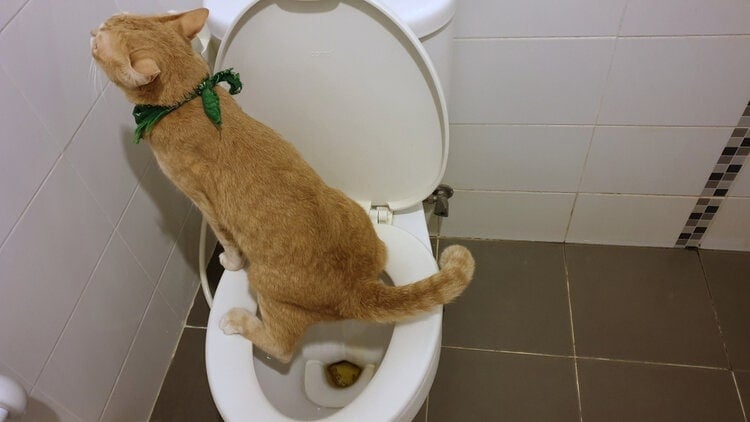Avoid Clogs and Damage: Don't Flush Cat Poop Down Your Toilet - Expert Insights
Avoid Clogs and Damage: Don't Flush Cat Poop Down Your Toilet - Expert Insights
Blog Article
Here in the next paragraph you will find more dependable details concerning How to Dispose of Cat Poop and Litter Without Plastic Bags.

Introduction
As feline owners, it's important to bear in mind exactly how we take care of our feline close friends' waste. While it might appear hassle-free to purge pet cat poop down the toilet, this practice can have detrimental consequences for both the environment and human wellness.
Ecological Impact
Purging pet cat poop introduces hazardous pathogens and bloodsuckers right into the supply of water, positioning a considerable risk to marine communities. These contaminants can adversely affect marine life and concession water quality.
Health Risks
Along with environmental worries, purging cat waste can likewise position health and wellness risks to people. Pet cat feces may include Toxoplasma gondii, a parasite that can create toxoplasmosis-- a potentially severe illness, particularly for expectant females and people with weakened immune systems.
Alternatives to Flushing
Fortunately, there are much safer and extra responsible ways to dispose of feline poop. Think about the following options:
1. Scoop and Dispose in Trash
The most typical approach of getting rid of feline poop is to scoop it into a naturally degradable bag and throw it in the trash. Make sure to utilize a specialized trash inside story and get rid of the waste without delay.
2. Usage Biodegradable Litter
Opt for eco-friendly cat trash made from products such as corn or wheat. These litters are eco-friendly and can be securely thrown away in the trash.
3. Bury in the Yard
If you have a lawn, take into consideration burying feline waste in a marked location away from vegetable gardens and water resources. Make certain to dig deep adequate to stop contamination of groundwater.
4. Install a Pet Waste Disposal System
Buy a pet waste disposal system particularly designed for pet cat waste. These systems make use of enzymes to break down the waste, minimizing smell and environmental effect.
Conclusion
Responsible animal ownership extends past supplying food and sanctuary-- it also involves correct waste monitoring. By avoiding purging pet cat poop down the toilet and choosing alternative disposal approaches, we can minimize our ecological impact and safeguard human health and wellness.
Why You Should Never Flush Cat Poop Down the Toilet
A rose by any other name might smell as sweet, but not all poop is created equal. Toilets, and our sewage systems, are designed for human excrement, not animal waste. It might seem like it couldn’t hurt to toss cat feces into the loo, but it’s not a good idea to flush cat poop in the toilet.
First and foremost, assuming your cat uses a litter box, any waste is going to have litter on it. And even the smallest amount of litter can wreak havoc on plumbing.
Over time, small amounts build up, filling up your septic system. Most litter sold today is clumping; it is made from a type of clay that hardens when it gets wet. Ever tried to scrape old clumps from the bottom of a litter box? You know just how cement-hard it can get!
Now imagine just a small clump of that stuck in your pipes. A simple de-clogger like Drano isn’t going to cut it. And that means it’s going to cost you big time to fix it.
Parasitic Contamination
Believe it or not, your healthy kitty may be harboring a nasty parasite. Only cats excrete Toxoplasma in their feces. Yet it rarely causes serious health issues in the cats that are infected. Most people will be fine too if infected. Only pregnant women and people with compromised immune systems are at risk. (If you’ve ever heard how women who are expecting are excused from litter cleaning duty, Toxoplasma is why.)
But other animals may have a problem if infected with the parasite. And human water treatment systems aren’t designed to handle it. As a result, the systems don’t remove the parasite before discharging wastewater into local waterways. Fish, shellfish, and other marine life — otters in particular — are susceptible to toxoplasma. If exposed, most will end up with brain damage and many will die.
Depending on the species of fish, they may end up on someone’s fish hook and, ultimately on someone’s dinner plate. If that someone has a chronic illness, they’re at risk.
Skip the Toilet Training
We know there are folks out there who like to toilet train their cats. And we give them props, it takes a lot of work. But thanks to the toxoplasma, it’s not a good idea.

Hopefully you liked our excerpt about Can You Flush Cat Poop Down The Toilet?. Thanks for taking a few minutes to read through our post. In case you appreciated our blog posting plz make sure you remember to share it. Thanks a lot for taking the time to read it.
Click Here Report this page